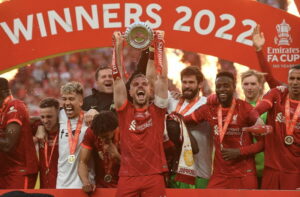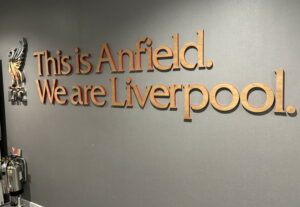
English football is not averse to adorning promising teenage players as the country’s ‘great white hope’ for the future. So starved has the national team been of anything bordering on success that when an abnormally gifted young talent takes to the Premier League like a duck to water, there is a tendency to hail them as England’s future saviour. Jack Wilshere has had this mantle thrust upon him, only to see his career dogged by a catalogue of injuries. In the late 1990s, the dubious honour fell to a cocky Londoner by the name of Joe Cole.
It was at the start of 1999 that the 17-year-old made his breakthrough to the West Ham first team, having been the standout member of the club’s thriving academy conveyor belt at the time. His confidence on the ball and effervescent style of play drew comparisons with Paul Gascoigne and he won the FA Youth Cup with the Hammers that year. He became a first team regular at the Boleyn Ground during the 1999/2000 season and it was perhaps a little surprising that he had to wait until May 2001 to make his senior England debut. Even in a West Ham team with the promising talents of Frank Lampard, Jermaine Defoe Michael Carrick, it was Cole’s star which often shone brightest. He was only 21 when then-Hammers boss Glenn Roeder made him club captain in 2003, but that season ended in relegation for the east Londoners.
That outcome didn’t do any harm to Cole’s reputation, though, and it was no real surprise that he moved on following West Ham’s relegation. He became one of the first signings of the Roman Abramovich era at Chelsea, joining for what now seems a paltry £6.6 million. He was a regular presence in Claudio Ranieri’s first team during 2003/04, although he ended the campaign with just one league goal. The following season was when Cole truly became a player of genuine substance, scoring eight times and starring in the first Chelsea team in 50 years to be crowned English champions. Even the arrival of Shaun Wright-Phillips in summer 2005 couldn’t dislodge him from Jose Mourinho’s first XI and it was his goal in a 3-0 win over Manchester United that confirmed Chelsea as champions in 2006, the Blues putting together back-to-back titles.
Unfortunately for the England winger, what should then have been the peak years of his career ended up being dogged by a litany of injuries. He was out for eight months in 2009 after picking up a knee injury in an FA Cup tie against Southend, although the 2009/10 season would end on a high note after he again scored a decisive goal in a title-defining clash against Manchester United. His flicked effort in a 2-1 win at Old Trafford ended up being hugely significant, as the Blues pipped United to the title by just one point.
Cole’s Chelsea contract expired in 2010, though, and he left the Blues after seven years to join Liverpool on a free transfer. His Reds debut was far from auspicious, being sent off halfway through a 1-1 home draw with Arsenal, although he put that behind them with an instant impact in Liverpool’s 4-1 Europa League win over Steaua Bucharest, opening the scoring after just 27 seconds. During a troubled season for the club, though, Cole looked like a player whose injuries had taken their toll and was definitely not the sharp, effervescent winger that won three titles with Chelsea. A stoppage time winner against Bolton in the dying embers of Roy Hodgson’s reign was a rare highlight and opportunities under Kenny Dalglish were limited.
Cole was sent on loan to Lille for the 2011/12 season, a surprise destination perhaps but one where his fortunes improved after that troubled first year at Liverpool. Indeed, he did sufficiently well in France to prompt Lille manager Rudi Garcia to publicly state his desire to keep the English midfielder at the club. However, with Brendan Rodgers replacing Dalglish at Anfield in June 2012, Cole was prised back to Liverpool, but injuries and average form would make it another frustrating campaign for him. He scored against West Ham in a 3-2 away win that season but a month later was lining out in the colours of his boyhood club after leaving Liverpool on a free transfer.
He admitted afterwards that he never felt any real connection with the Liverpool supporters during his time at Anfield, an unfortunate observation but a respectfully honest one. By contrast, he was adored at West Ham and his second spell at the Boleyn Ground was more like vintage Joe Cole. He moved to Aston Villa in summer 2014, staying for 16 months before an emergency loan switch to Coventry became permanent. Since May 2016, he has been playing in the USA’s North American Soccer League with the Tampa Bay Rowdies, being nominated for the league’s Most Valuable Player award that year.
Cole was undoubtedly a gifted footballer who was superb in his prime, but sadly Liverpool fans did not get to see the best of him in a red shirt. If anything, the most difficult years of a fine career probably came at Anfield, which was a shame given his plentiful ability. Cole and Liverpool just weren’t right for each other, and he never quite became the saviour of English football that some thought he might be at the turn of the century, but very few players in the country would turn their nose up at what he has achieved in his career.



